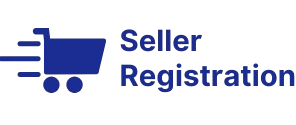Who Can Become an Online Seller? Requirements & Eligibility
The rise of e-commerce has made it easier than ever for anyone to start selling products online. Whether you are an individual, a small business owner, or a large enterprise, online selling offers endless opportunities. But who can become an online seller? What are the basic requirements and eligibility criteria? This article provides a detailed guide to help you understand everything you need to get started.
Who Can Become an Online Seller?
Online selling is open to a wide range of individuals and businesses. Whether you want to sell handcrafted items, start a dropshipping business, or expand your existing store online, there is a place for you in the digital marketplace. Here are the key categories of people who can start selling online:
Individuals & Freelancers – If you have handmade products, digital goods, or unique items to sell, you can start as an individual seller.
Small Business Owners – Local businesses looking to expand their reach can easily set up an online store.
Entrepreneurs & Startups – Those planning to launch new products or brands can benefit from e-commerce platforms.
Manufacturers & Wholesalers – Large-scale sellers looking to reach a bigger market can list their products on online marketplaces.
Basic Requirements to Start Selling Online
While the specific requirements may vary depending on the platform and country, certain fundamental criteria apply to almost all online sellers. Understanding these basic requirements will help ensure a smooth and hassle-free selling experience.
Legal Documentation
Every online seller needs to comply with legal requirements. These may differ based on whether you are an individual or a registered business.
For Individuals: Some platforms allow individual sellers to start with just identity proof (Aadhaar, PAN, or passport in India).
For Businesses: A registered business (sole proprietorship, partnership, or private limited company) may be required along with a GST number (if applicable).
For International Selling: You may need additional tax documents and shipping compliance certificates.
Bank Account & Payment Setup
Receiving payments is an essential part of online selling, and sellers need to have a valid bank account linked to their online store. To receive payments on time or make transactions seamlessly, a valid bank account is required for the E-commerce marketplace.
Some platforms require business accounts, while others accept personal accounts for individual sellers.
Product Listing & Inventory Management
A well-managed inventory and clear product listings enhance customer experience and help increase sales. What you require for product listing and inventory management are as follows –
- Clear product descriptions, images, and pricing details.
- Inventory tracking to avoid order fulfillment issues.
E-commerce Platform Registration
Signing up on an e-commerce platform is the first step in starting your online store. Different platforms have different sign-up processes. For this, selecting the right and experienced seller registration provider is essential which results in quick and flawless onboarding.
- Signing up on marketplaces like Amazon, Flipkart, eBay, or Shopify.
- Providing required documents during the registration process.
5. Shipping & Logistics
Shipping is a crucial part of online selling. Understanding logistics helps streamline the order fulfillment process and ensures timely delivery. The following are the points that must be kept in mind –
- Sellers must manage product packaging and shipping.
- Some platforms offer fulfillment services, while others require self-shipping.
Eligibility Criteria for Different E-commerce Platforms
Different e-commerce platforms have different requirements and policies. Knowing these criteria helps in choosing the right platform for your business. For different platforms, the following are the basic eligibility criteria that must be fulfilled –
Amazon: Requires GSTIN for selling taxable goods, PAN details, and a valid bank account.
Flipkart: Needs business registration, GST details, and a pickup location.
Shopify & WooCommerce: No strict eligibility; anyone can start their own store with a domain and payment gateway.
Etsy: Ideal for handmade or vintage products; requires basic ID proof.
Conclusion
It is easy for anyone to become an online seller, as long as they have the platform and legal requirements. As a private individual wanting to sell home-made products or a company looking to expand online, it is easy to do so with the correct documents and a solid plan.
By understanding the eligibility criteria and preparing the necessary requirements, you can successfully establish and grow your online business. Start small, choose the right platform, and take the necessary steps to make your online selling journey a success.
